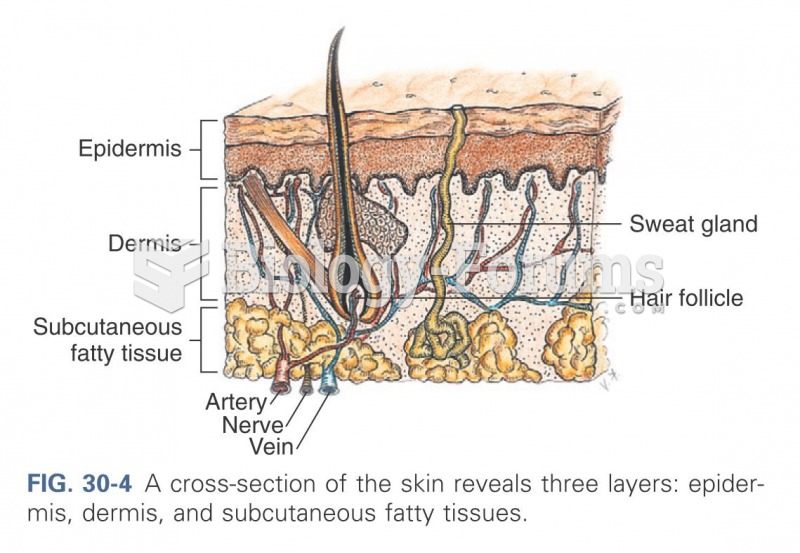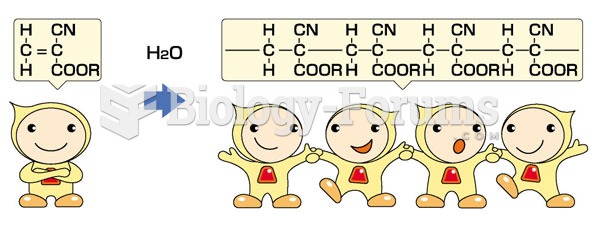|
|
|
Thyroid conditions may make getting pregnant impossible.
Many supplement containers do not even contain what their labels say. There are many documented reports of products containing much less, or more, that what is listed on their labels. They may also contain undisclosed prescription drugs and even contaminants.
The first oncogene was discovered in 1970 and was termed SRC (pronounced "SARK").
The Romans did not use numerals to indicate fractions but instead used words to indicate parts of a whole.
Anesthesia awareness is a potentially disturbing adverse effect wherein patients who have been paralyzed with muscle relaxants may awaken. They may be aware of their surroundings but unable to communicate or move. Neurologic monitoring equipment that helps to more closely check the patient's anesthesia stages is now available to avoid the occurrence of anesthesia awareness.







